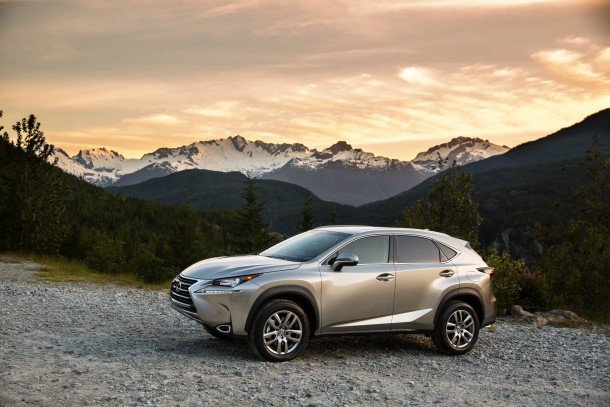New Models Are Major Contributors In America's Growing Auto Industry
123,000 of the 5.4 million new vehicle sales generated in the United States over the last four months are new vehicle nameplates which weren’t on sale at this time a year ago.
Between January and April, the Ford Transit, Acura TLX, Chevrolet Trax, Lexus NX, and 18 other new nameplates accounted for 2.3% of all new vehicle sales volume in the United States, way up from the 1.7% achieved by a smaller fleet of all-new nameplates during the same period one year earlier.
(This year’s figure doesn’t take into account the Volkswagen Golf SportWagen, as that’s not so much a new nameplate as a direct successor to the Volkswagen Jetta SportWagen, which was basically a Golf wagon with another name.)
No new nameplate is selling as often as the Ford Transit, Ford’s E-Series replacement. The replacement period is certainly not over, however, as the Transit generated 33,794 sales through the first one-third of 2015 alongside 18,710 copies of the E-Series.
Acura tasked its new TLX with replacing two cars, the TL and TSX. 13,834 TLX sedans were sold during the first four months of 2015 (32,961 since its launch last summer), up 34% from the combined TL/TSX figure of 10,349 sales during the same period a year ago.
Chevrolet sold 13,137 copies of the Trax subcompact crossover between January and April of this year. At this time last year, Buick sold 15,040 Encores. The arrival of the Encore’s Trax twin hasn’t slowed the Encore.
Lexus’s NX launched as a quick hit. 12,532 copies of the NX200T and NX300h were sold in the first four months of 2015, making the NX more popular than the Mercedes-Benz GLK, BMW X3, and Lincoln MKC.
Another small premium crossover, the Mercedes-Benz GLA-Class, attracted 7,750 owners in the first-third of 2015. Mercedes-Benz adds those sales to the 10,896 copies of the CLA sedan sold already this year.
Indeed, small SUVs/CUVs are common on the list of new vehicles. The Lincoln MKC, Jeep Renegade, Audi Q3, Porsche Macan, BMW X4, and Land Rover Discovery Sport combined for 23,170 sales between January and April. Somewhere between those smaller utility vehicles and traditional wagons sits the Volvo V60 Cross Country, 636 of which have been sold so far this year.
Other products generating sales activity in the United States this year not around in any form at this time last year: the Mini Cooper 4-door, Lexus RC, BMW i3, Chevrolet City Express (a Nissan NV200 copy), Ram ProMaster City, Alfa Romeo 4C, Mercedes-Benz AMG GT, and Porsche 918 Spyder. Assuming their buyers wouldn’t have headed elsewhere – which some surely would have – the market would be up 3% year-to-date. Instead, with these vehicles contributing, U.S. auto sales are up 5.4% in early 2015.
Timothy Cain is the founder of GoodCarBadCar.net, which obsesses over the free and frequent publication of U.S. and Canadian auto sales figures. Follow on Twitter @goodcarbadcar and on Facebook.
More by Timothy Cain
Latest Car Reviews
Read moreLatest Product Reviews
Read moreRecent Comments
- Ltcmgm78 Imagine the feeling of fulfillment he must have when he looks upon all the improvements to the Corvette over time!
- ToolGuy "The car is the eye in my head and I have never spared money on it, no less, it is not new and is over 30 years old."• Translation please?(Theories: written by AI; written by an engineer lol)
- Ltcmgm78 It depends on whether or not the union is a help or a hindrance to the manufacturer and workers. A union isn't needed if the manufacturer takes care of its workers.
- Honda1 Unions were needed back in the early days, not needed know. There are plenty of rules and regulations and government agencies that keep companies in line. It's just a money grad and nothing more. Fain is a punk!
- 1995 SC If the necessary number of employees vote to unionize then yes, they should be unionized. That's how it works.

































Comments
Join the conversation
The problem with the Lexus NX is the amount of front overhang, not the front fascia design. How much did it cost Audi to redesign their FWD A4/A5 platform to move the front wheels forward?
Take away the hideous snout and the Lexus alphanumeric thing could pass for a Kia or cheaper Asian insert name here brand.